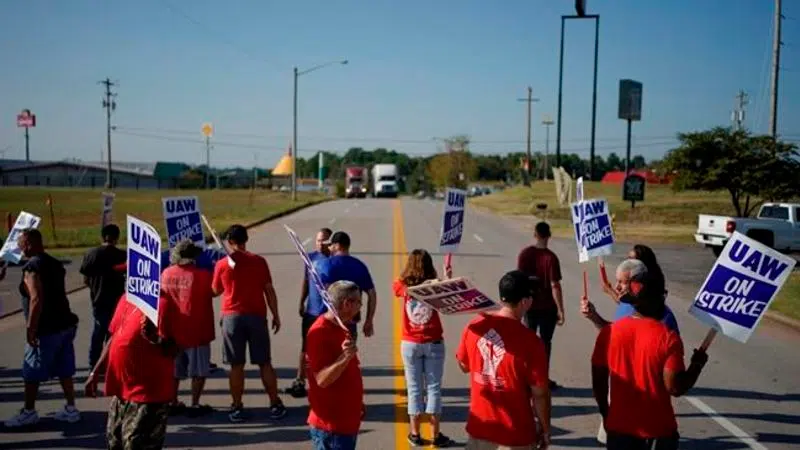
GM workers to stay on picket line until vote on new contract
DETROIT — Striking General Motors workers will stay on the picket lines for at least another week until they vote on a tentative contract with the company.
Factory-level officials from the United Auto Workers union voted to recommend the agreement to members at a daylong meeting in Detroit Thursday. But they also voted not to return to factories unless members approve the deal.
About 49,000 workers have been on strike for more than a month, paralyzing GM’s U.S. factories and costing the company an estimated $2 billion.
On Wednesday, the company and the UAW reached a deal that would give workers a mix of pay raises, lump sum payments and an $11,000 signing bonus. In return, the contract allows GM to proceed with factory closures in Lordstown, Ohio; Warren, Michigan; and near Baltimore.


